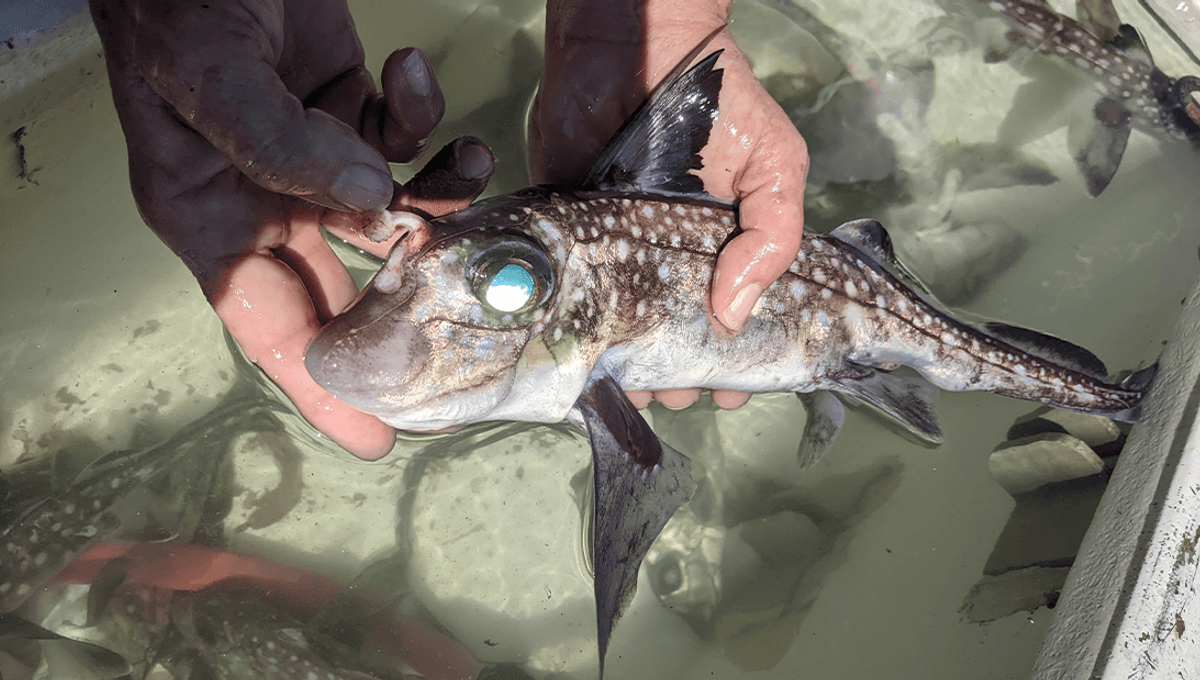
Teeth and the evolution of teeth have long fascinated researchers in all manner of species. Questions arise, such as why they evolved, why they were lost, and even in some cases, why they evolved again. However, these questions focus on teeth within the mouth – one fish species is growing teeth straight out of its forehead.
The rest of this article is behind a paywall. Please sign in or subscribe to access the full content.
Enter the spotted ratfish, a shark-like species known as a chimera, or “ghost shark”, that is typically found swimming in the northeastern Pacific Ocean. Instead of having teeth inside their mouths, they have rows of teeth on top of their heads, on an appendage sticking out of their face called a tenaculum.
“This insane, absolutely spectacular feature flips the long-standing assumption in evolutionary biology that teeth are strictly oral structures,” said Karly Cohen, a postdoctoral researcher at the University of Washington’s Friday Harbor Labs, in a statement. “The tenaculum is a developmental relic, not a bizarre one-off, and the first clear example of a toothed structure outside the jaw.”
The team found that only adult male ratfish have a tenaculum, and when not being used, it simply resembles a small white lump between the eyes. However, when it pops out, the tenaculum is barbed and hooked with teeth, and can be used to intimidate other males, as well as to grip the pectoral fins of a female during mating. The teeth on the tenaculum can even retract and flex, which can cause scarring on the fins of the female.
What makes this even more unusual is that these ratfish don’t have teeth like sharks; instead, they have a tooth plate made of only dentine, the hard tissue that makes up the bulk of a tooth. The researchers set out to find out whether the tenaculum evolved from oral teeth or if it arose from the development of the denticles of the body.
A 315-million-year-old fossil revealed the answer; it showed the tenaculum attached to the jaw of the fossil with teeth like those seen in the mouth. DNA testing of modern chimeras showed that they have the same tooth-growing process on their heads as sharks do inside their mouths.
“What we found is that the teeth on this strange appendage look very much like rows of shark teeth. The ability to make teeth transferred onto that appendage, likely from the mouth,” said Gareth Fraser, Ph.D., a professor of biology at the University of Florida and senior author of the study, in another statement. “Over time, the tenaculum shortened but retained the ability to make oral teeth on this forehead appendage.”
CT scans and genetic evidence also revealed that the tenaculum teeth have a pattern of gene expression that is also found in shark teeth, but not in the denticles of shark skin.
“If these strange chimaeras are sticking teeth on the front of their head, it makes you think about the dynamism of tooth development more generally,” said Fraser. “If chimaeras can make a set of teeth outside the mouth, where else might we find teeth?”
“There are still plenty of surprises down in the ocean depths that we have yet to uncover.”
The study is published in PNAS.
Source Link: Freaky Ratfish Have Teeth Growing Out Of Their Foreheads, And They Use Them For Love